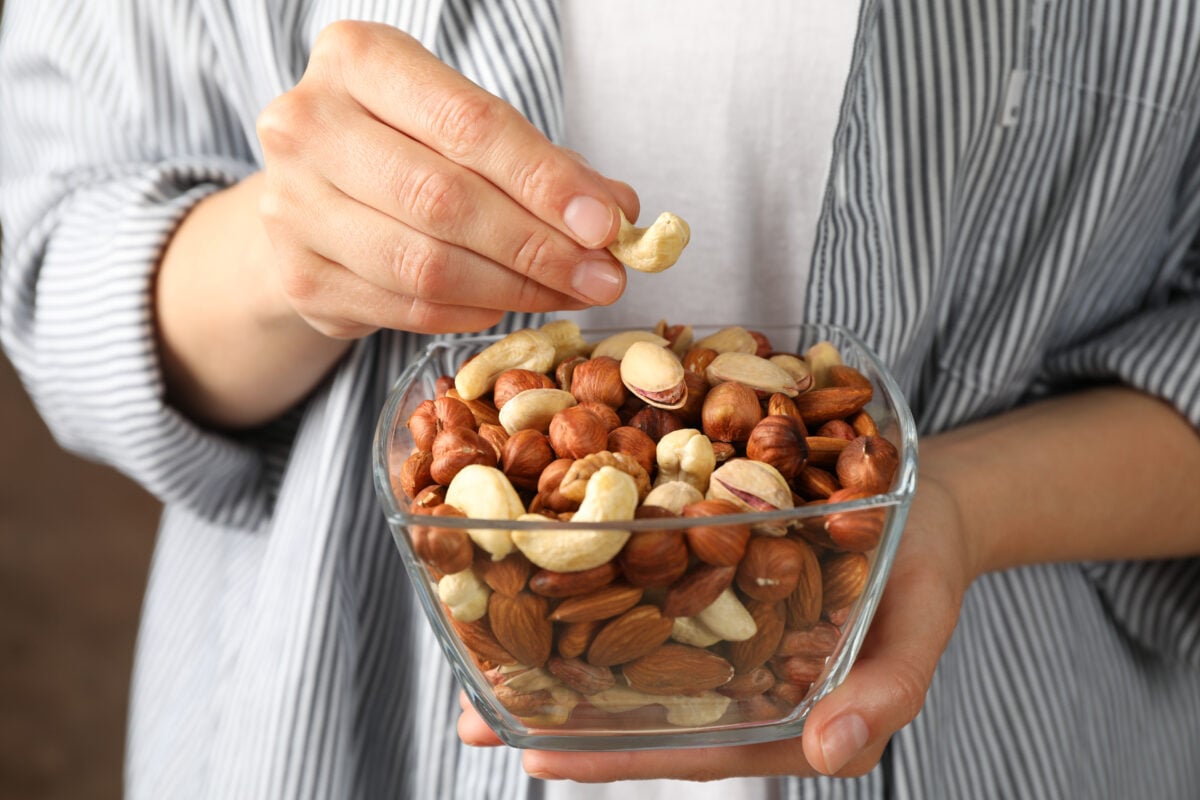Eating a plant-based diet rich in vegetables, nuts, and tea can significantly decrease the risk of developing Parkinson’s Disease, a new study has found.
Researchers from Queen’s University in Belfast calculated indices for an overall plant-based diet, a healthy one, and an unhealthy one. They selected 126,283 participants from the UK Biobank – a large-scale biomedical database and research resource. The participants filled out a questionnaire about how often they consumed approximately 200 different foods and 30 drinks over a 24 hour period.
After 11.8 years of tracking, 577 participants were diagnosed with Parkinson’s disease. The researchers found that those who scored more highly on the healthy plant-based diet index had a 22 to 25 percent lower risk of developing Parkinson’s, depending on genetic risk factors. Eating a middling plant-based diet lowered the risk by 18 percent. But those consuming more unhealthy plant-based foods such as refined grains, sugar-sweetened beverages, and desserts, had 38 percent higher risk.
Looking specifically at people over 60, since Parkinson’s is more common in older people, the researchers found an even stronger association between healthy plant-based diets and reduced risk. The study is published in the journal Movement Disorders.
Specific foods are more protective

Analyzing the specific foods consumed, the researchers found that higher intakes of nuts and tea reduced the risk of Parkinson’s by 31 percent and 25 percent respectively. Eating more vegetables – particularly tomatoes, salad, carrots, and cruciferous vegetables like broccoli and kale – was associated with a 28 percent risk reduction.
The study fills in gaps in the evidence about the effects of specific foods and nutrients on the development of Parkinson’s. Though some studies have already shown a link between high consumption of healthy plant-based foods and lower risk of Parkinson’s, there was a lack of larger randomized clinical trials such as the current study.
“These results are important to help refine and inform public health messages that consider plant-based diets and provide evidence that simple dietary change has the potential to reduce [Parkinson’s] risk,” the researchers conclude.
“Moreover, healthful plant-based diets are beneficial for planetary health and are aligned with the dietary recommendations for the prevention of chronic diseases across the globe including those for a Planetary Health Diet by EAT Lancet Commission on Food, Planet, Health.”
Parkinson’s is a growing public health issue
Parkinson’s disease is the most common brain disease affecting movement and the second most common age-related degenerative brain disease after Alzheimer’s. The main symptoms of Parkinson’s disease include involuntary tremors, slow movement, and stiff and inflexible muscles. It is rising in prevalence around the world, affecting around one percent of people over 60 years and three percent of people over 80 in wealthy countries.
Gastrointestinal symptoms have been found to precede the onset of the disease, and growing evidence links the health of the gut microbiome to Parkinson’s and other neurodegenerative diseases. This makes diet an area of particular interest for investigating preventative measures.
Impact of other foods on neurodegenerative disease risk
One study found that high consumption of flavonoid-rich foods like berries was linked to a 40 percent lower risk of developing Parkinson’s. Caffeine is the most well-studied food in relation to Parkinson’s risk, and is associated with a probably decreased risk for the disease.
The study in Movement Disorders does not look at links between eating animal products and Parkinson’s disease risk. But eating processed meat could raise the risk of dementia. One study found that eating 25g of processed meat a day – about one rasher of bacon – was associated with increased risk. The MIND diet, which focuses on plant-based foods linked to preventing dementia, limits consumption of red meat, sweets, cheese, butter/margarine, and fast food or fried food.






